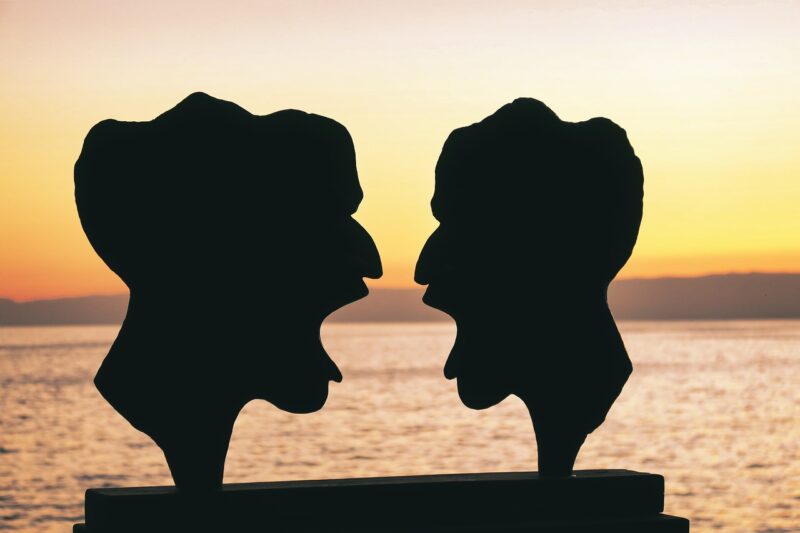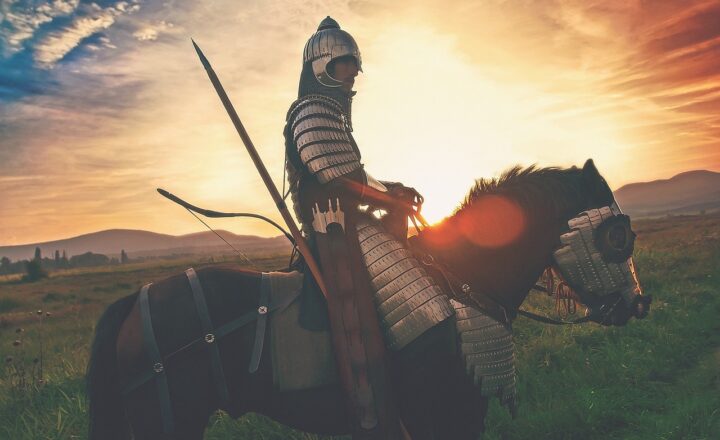Beyond Fiction: Historical Conflicts That Inspired Your Favorite TV Series
November 18, 2024

Television has the unique ability to weave intricate stories that often transport viewers to different times and places. However, behind many of our favorite TV series lies a tapestry of historical truths, conflicts, and events that lend authenticity and depth to their narratives. From royal dramas to gritty war sagas, many series draw inspiration from real historical events and figures. In this article, we will explore several historical conflicts that have directly influenced popular television series, examining how these stories reflect our past and resonate with contemporary audiences.
1. Game of Thrones: The Wars of the Roses
The mega-hit series “Game of Thrones” is often lauded for its complexity and character depth, but did you know it was heavily inspired by the Wars of the Roses, a series of dynastic conflicts in England during the 15th century? Just as the noble houses of Westeros vie for power, real-life factions like the Lancasters and the Yorks battled for control of the English throne.
The intricate political intrigues, bloody battles, and power plays depicted in the show echo historical figures and events, such as:
- House Stark: Often likened to the York family for their honor and loyalty, they faced betrayal and loss, mirroring historical narratives of loyalty and ambition during the Wars of the Roses.
- House Lannister: Similar to the ruthless Lancaster family, the Lannisters show how wealth and cunning can manipulate political outcomes, much like their historical counterparts who played key roles in the conflict.
- The Iron Throne: A symbol of ultimate power, much like the throne sought by various claimants during the Wars of the Roses, which ultimately led to immense bloodshed and political maneuvering.
The series captures the essence of these historical conflicts while infusing a fantastical twist, highlighting how the struggle for power can lead to both glory and destruction.
2. The Crown: The Queen’s Gambit
The Netflix phenomenon “The Crown” portrays the reign of Queen Elizabeth II and intricately dives into the political maneuvers of the British monarchy from World War II through the modern era. A notable historical event covered in the series is the Suez Crisis of 1956, a pivotal moment that showcased the decline of British imperial power, and prompted a re-evaluation of Britain’s role on the global stage.
Episodes highlighting this crisis explore themes of:
- National Identity: The series illustrates the tension between maintaining a global empire and responding to the realities of post-war nationalism, as other countries sought independence.
- Personal vs. Political: Viewers witness Elizabeth facing challenges that force her to choose between her obligations as monarch and her personal beliefs, reflecting the conflicts of leadership faced by world leaders during that era.
This dramatization not only provides insight into a significant historical event but also gives viewers a glimpse into the complexities of monarchy and governance, all while maintaining historical accuracy.
3. Vikings: The Norse Invasions & Saga
“Vikings” is a gritty portrayal of the Norsemen during the 8th to 11th centuries, focusing on the life of legendary figure Ragnar Lothbrok, a semi-mythical Viking hero. The series paints a vivid picture of the Viking invasions of England and the cultural exchanges that ensued as a result of these encounters.
Key historical elements represented in the series include:
- The Great Heathen Army: The series draws from the historical accounts of the Viking invasion of England, delving into how these raids transformed Europe’s political landscape.
- Exploration and Settlement: Ragnar’s voyages to the West establish how the Vikings were not just raiders but also explorers, contributing to the cultural and economic exchanges between disparate civilizations.
With its stunning cinematography and rich storytelling, “Vikings” serves as both an entertaining drama and a reflection of historical realities experienced by the Norse. It emphasizes how cultural exchanges can shape civilizations, leaving legacies that persist through time.
4. The Pacific: World War II in the Pacific Theater
The miniseries “The Pacific” chronicles the harrowing experiences of U.S. Marines during World War II, particularly focusing on the battles against Japanese forces in the Pacific Theater. The show stands as a poignant reminder of the realities faced by soldiers in one of the most brutal conflicts in history.
This gripping drama explores:
- Brotherhood and Sacrifice: It examines the deep bonds formed between soldiers and the sacrifices they made—themes that resonate deeply with historical accounts of camaraderie amidst the horrors of war.
- Cultural Conflict: The series portrays the cultural misunderstandings and the harsh realities of the war, bringing attention to the human aspect of conflict beyond mere statistics and battles.
Through meticulous research and moving storytelling, “The Pacific” presents a realistic portrayal of the Second World War, honoring the bravery of those who served while educating viewers about this significant historical event.
5. Chernobyl: The Nuclear Disaster of 1986
The HBO miniseries “Chernobyl” recounts the catastrophic nuclear disaster that occurred in 1986 in the Soviet Union, delving into the events that led to the explosion of reactor number four at the Chernobyl Nuclear Power Plant. The series highlights not only the tragedy of the event but also the political fallout and the human cost of bureaucratic negligence.
Key themes explored in the series include:
- The Costs of Secrecy: The series emphasizes how a culture of secrecy and failure to acknowledge problems contributed to the scale of the disaster.
- Human Resilience: Many characters display immense bravery in the face of harrowing circumstances, illustrating the human spirit’s capacity to confront danger and adversity.
By bringing the catastrophe of Chernobyl to the screen, the series effectively serves as a reminder of the importance of transparency and safety in technological advancement, while educating viewers on an event that altered the course of history.
Conclusion
In conclusion, the intersection of history and television storytelling has become a powerful tool for conveying complex narratives that educate and entertain. By exploring historical conflicts that inspired popular TV series, we gain a deeper understanding of our past and, in many cases, the moral questions that continue to resonate today. Whether through political intrigue, warfare, or societal change, these historical events offer a reflection of the human condition that remains relevant in our contemporary world. As we watch these narratives unfold on our screens, we not only engage with fiction but also with the legacies of history that shape our understanding of ourselves and each other.







